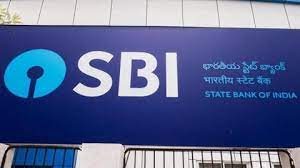The recent developments at State Bank of India (SBI), including the significant decline in net income and the provisions made towards the wage hike settlement, raise questions about their potential impact on the bank’s share price. Let’s explore the factors that could influence SBI’s stock performance in light of these events.
Financial Performance and Investor Sentiment
The 35% decline in SBI’s net income for the October-December 2023 quarter is likely to attract attention from investors and analysts alike. Such a substantial decrease in profitability may lead to concerns about the bank’s overall financial health and operational efficiency. As a result, investor sentiment towards SBI shares could be negatively impacted in the short term.
Provisions and Earnings Outlook
The provisions made by SBI towards the wage hike settlement, totaling Rs 7,100 crore, could weigh on the bank’s earnings outlook for the coming quarters. While these provisions are essential for addressing employee-related obligations, they represent a significant expense that could affect SBI’s bottom line. Consequently, investors may adjust their earnings expectations for the bank, potentially influencing its stock price trajectory.
Market Reaction and Investor Perception
The reaction of the stock market to SBI’s financial results and announcements regarding the wage hike settlement will play a crucial role in determining the immediate impact on its share price. Any negative sentiment stemming from the decline in net income or concerns about the provisions made could lead to selling pressure on SBI shares, causing a short-term decline in their price.
Long-Term Fundamentals and Growth Prospects
Despite the near-term challenges posed by the decline in profitability and provisions, SBI’s long-term fundamentals and growth prospects remain intact. As the largest lender in the country with a vast customer base and extensive branch network, SBI continues to play a pivotal role in India’s banking sector. Investors with a long-term perspective may view any share price fluctuations as opportunities to accumulate SBI shares at potentially attractive valuations.
Monitoring Share Price Dynamics
While the recent developments at SBI may introduce volatility in its share price in the short term, investors should focus on monitoring the bank’s fundamental performance, strategic initiatives, and macroeconomic factors that could influence its long-term growth trajectory. A prudent approach to investing in SBI shares involves conducting thorough research, assessing the bank’s financial health, and considering its position within the broader banking industry landscape.
Disclaimer:
The article provides information for reference only and does not offer financial advice. Investors should conduct their own research or consult a financial advisor before making investment decisions. The accuracy and reliability of the information are not guaranteed, and the author and publisher are not liable for any losses incurred. Investing in the stock market involves risks, and past performance does not guarantee future results.
CLICK HERE TO READ MORE SUCH NEWS

